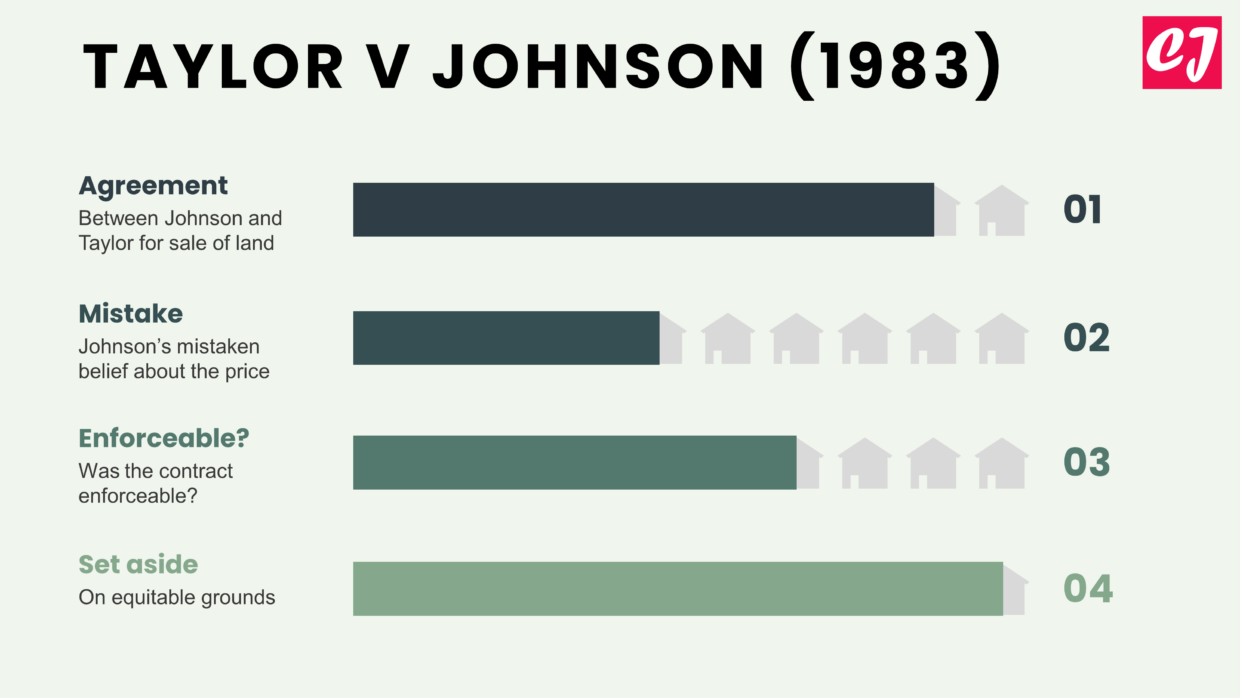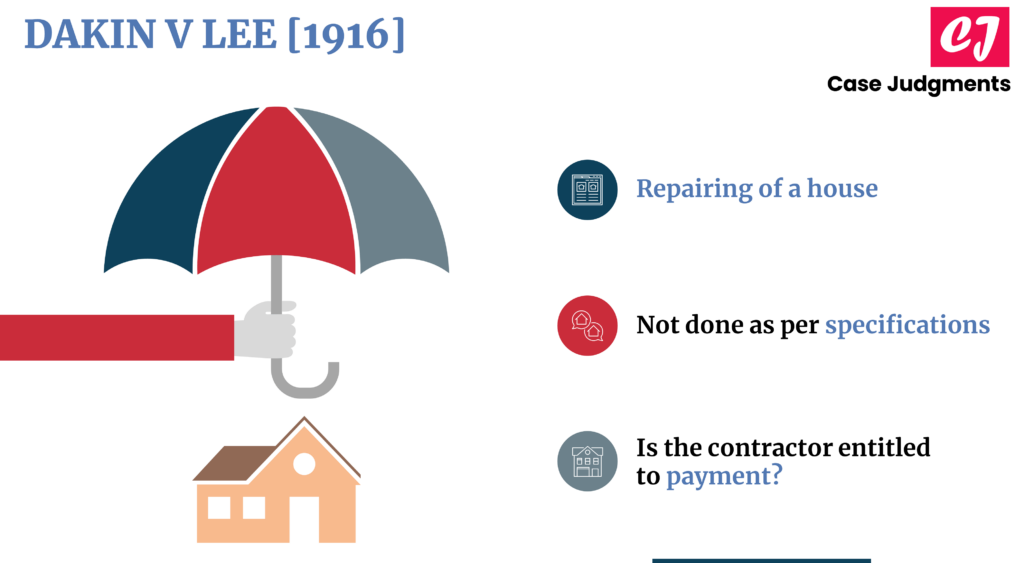
Taylor v Johnson (1983): A Case Summary
Taylor v Johnson (1983) is a famous contract law case on the issue of unilateral mistake. The case involved an offer to purchase land and a dispute over its purchase price.
Given below are the case details:
| Case name & citation: | Taylor v Johnson [1983] HCA 5; (1983) 151 CLR 422 |
| The concerned Court: | High Court of Australia |
| Decided on: | 23 February 1983 |
| The bench of judges: | Mason A.C.J., Murphy, Deane and Dawson JJ. |
| Area of law: | Contract of sale of land; Unilateral mistake |
Facts of the case (Taylor v Johnson)
Two parties, Johnson and Taylor, were involved in a land transaction. Johnson offered to sell Taylor (or his nominee) approximately ten acres of land for $15,000. Taylor exercised the option and a contract of sale was entered into. The purchase price was again stated as $15,000. Johnson later claimed that she believed that the consideration expressed in the documents was $15,000 per acre of land and not $15,000 for the entire ten-acre land.
Thus, a dispute arose between the two parties and Taylor sought to enforce the contract based on the price indicated in entirety.
Issue
Could the contract be invalidated based on Johnson’s mistaken belief regarding the price?
The case went through legal proceedings at multiple stages. Below are the details of what happened:
At trial (Taylor v Johnson)
The trial judge accepted that Johnson was mistaken about the purchase price of land, thinking it to be $15,000 per acre. However, the trial judge found that Taylor was not aware of this mistake. Hence, specific performance was ordered meaning that the contract should be enforced as written.
Johnson appealed to the New South Wales Court of Appeal.
Court of Appeal
The Court of Appeal found that Taylor was indeed aware of Johnson’s mistake and as a result, reversed the findings of the trial judge. The Court upheld Johnson’s appeal and set aside the contract of sale.
Dissatisfied, Taylor appealed to the High Court of Australia.
High Court’s decision in Taylor v Johnson
The High Court, by a majority decision, dismissed Taylor’s appeal.
The High Court found that Taylor’s knowledge of the mistake was a crucial factor and that the New South Wales Court of Appeal was open to reaching a different conclusion than that reached by the trial judge.
It was found that Taylor was aware that while agreeing to the sale of land for $15,000, Johnson was acting under a mistake as to its price or value.
Further, Taylor deliberately ensured that Johnson was not disabused of her mistake. He knew that the price was exceptionally favorable but said nothing and rather accepted the offer quickly.
Based on the facts and inferences, the Court found that there was a unilateral mistake related to a term of the contract, i.e., the purchase price. The majority held that the contract was nevertheless not void at common law but concluded that Johnson could set it aside on grounds of equity. That is, she was entitled to set aside the contract on equitable grounds.
Ratio decidendi
In situations where one party (Taylor) is aware that the other party (Johnson) has made a serious mistake regarding a fundamental term of the contract and takes deliberate actions to prevent the mistaken party from discovering the error until it’s too late, the contract can be declared void. This is because it goes against principles of good conscience for the party who knowingly ignores signs of the mistake and acts to prevent discovery of the error to enforce such a contract.
Quotes from the case
As per Mason A.C.J., Murphy, Deane JJ.
“It is that a party who has entered into a written contract under a serious mistake about its contents in relation to a fundamental term will be entitled in equity to an order rescinding the contract if the other party is aware that circumstances exist which indicate that the first party is entering the contract under some serious mistake or misapprehension about either the content or subject matter of that term and deliberately sets out to ensure that the first party does not become aware of the existence of his mistake or misapprehension.”
List of references:
- http://classic.austlii.edu.au/au/journals/MonashULawRw/1985/3.pdf
- https://fpbl.com.au/fpbl2022/Cases/taylor.htm
- https://legalhelpdesklawyers.com.au/1983/02/23/1983-taylor-v-johnson/
You might also like:
More from contract law:

